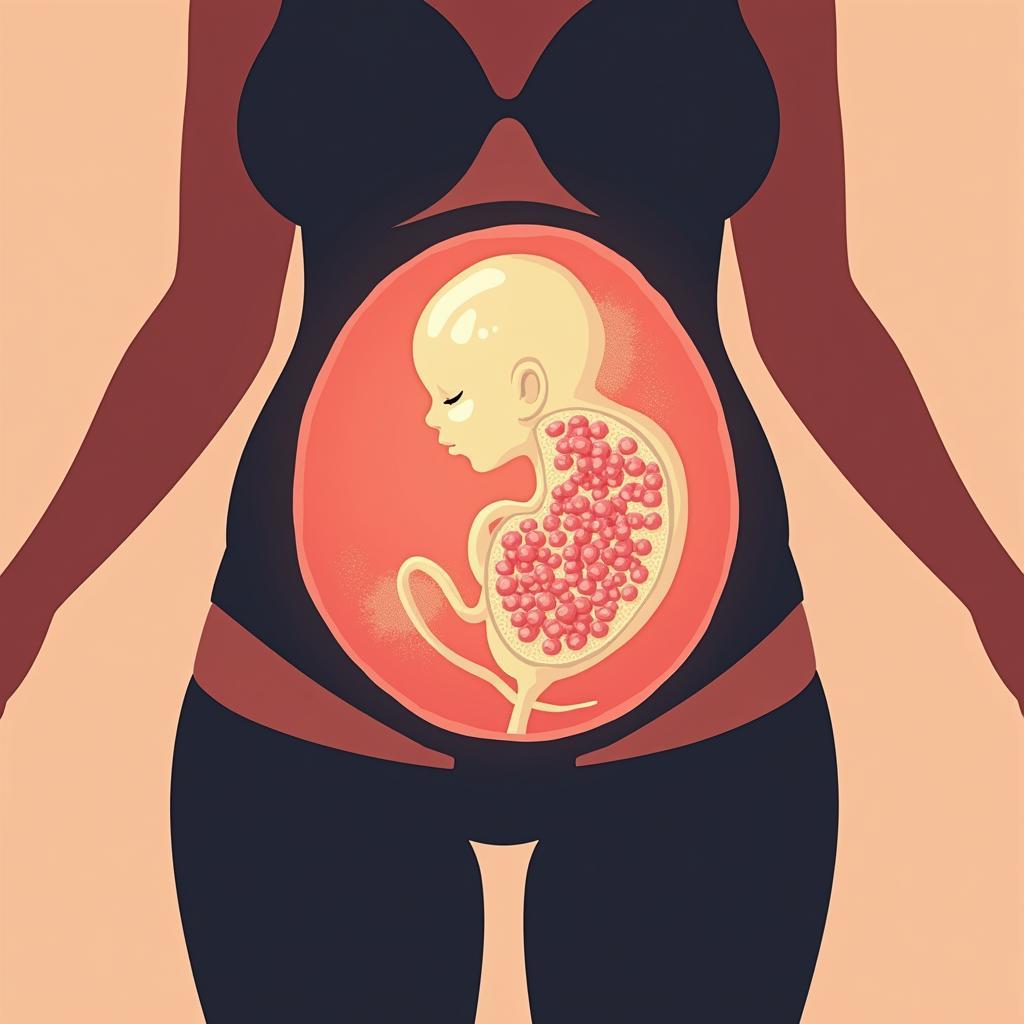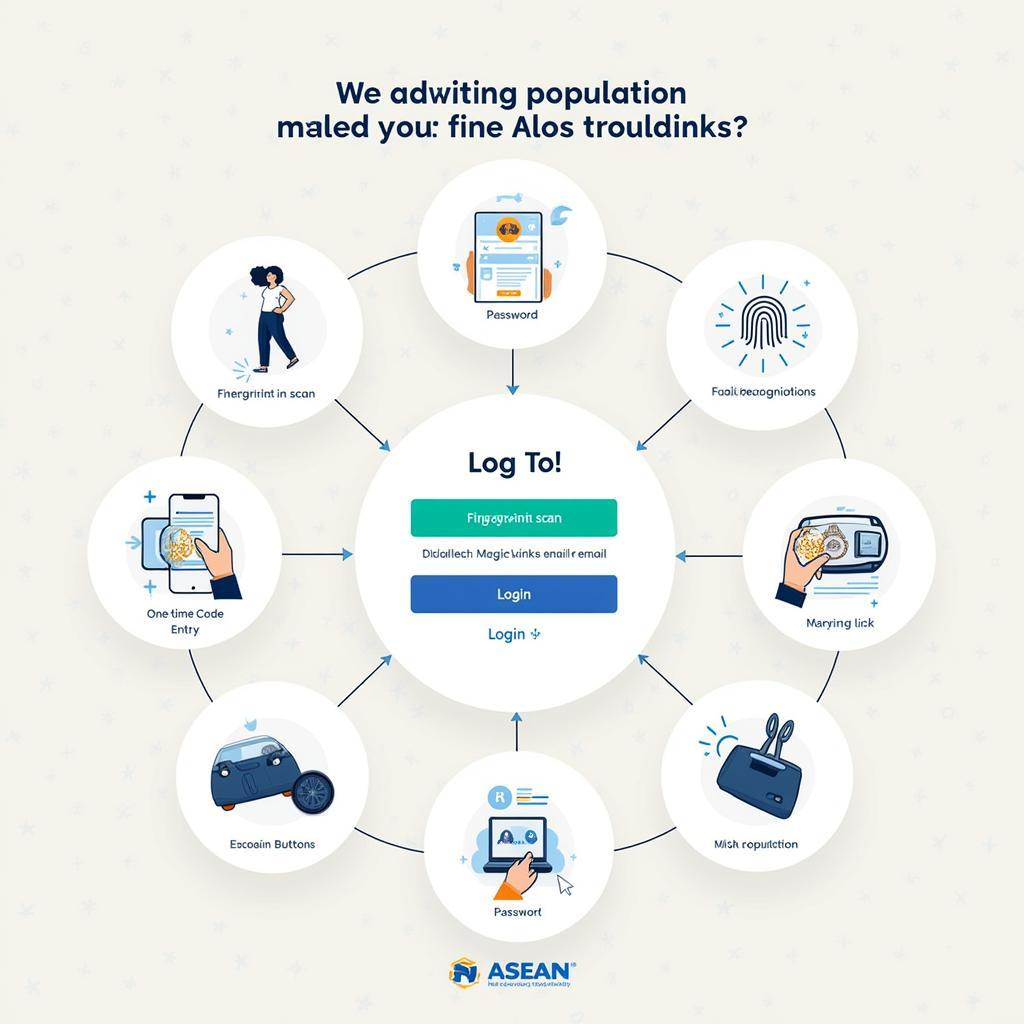The idea of enjoying a cold beer on a hot day can be tempting, even during pregnancy. However, when it comes to the question, “Ase Daño Tomar Una Cerveza En El Embarazo?”, the answer is not as simple as a yes or no. While many cultures may have traditional beliefs about moderate alcohol consumption during pregnancy, scientific evidence overwhelmingly points to the risks associated with any amount of alcohol, including beer, during this crucial time.
Debunking the Myths: Why “A Little Bit” Doesn’t Exist
You might have heard stories of women having an occasional beer during pregnancy with no apparent harm. This, however, doesn’t negate the potential risks involved. There’s no established safe limit for alcohol consumption during pregnancy. This means even a small amount of beer can pose a risk to the developing fetus.
 Alcohol Crossing the Placenta
Alcohol Crossing the Placenta
Here’s why:
- Direct Pathway: When you consume alcohol, it easily crosses the placenta, the lifeline between you and your baby. This means the developing fetus is directly exposed to the same blood alcohol concentration as you are.
- Developing Organs: During pregnancy, every organ in your baby’s body is in a critical stage of development. Alcohol acts as a teratogen, a substance that can interfere with this process, leading to potential birth defects.
- Unpredictable Impacts: The effects of alcohol can vary greatly from one pregnancy to another. Factors like genetics, gestational age, and the amount and frequency of alcohol consumed all play a role.
Fetal Alcohol Spectrum Disorders (FASDs): A Range of Risks
Exposure to alcohol during pregnancy can lead to a range of conditions collectively known as Fetal Alcohol Spectrum Disorders (FASDs). These disorders can cause lifelong physical, mental, behavioral, and learning disabilities.
Here are some of the potential effects of FASDs:
- Physical: Distinctive facial features, growth problems, organ dysfunction
- Cognitive: Learning disabilities, memory problems, poor judgment
- Behavioral: Difficulty with attention, hyperactivity, impulsivity
- Social and Emotional: Difficulty with social skills, emotional regulation, and adapting to change
Making the Safe Choice: Abstaining from Alcohol During Pregnancy
The only proven way to prevent FASDs is to abstain from alcohol completely during pregnancy. This might seem challenging, especially in social situations, but the health and well-being of your baby are paramount.
Here are some tips for navigating social situations where alcohol is present:
- Be Open and Honest: Let your friends and family know you’re not drinking for the health of your baby. Most people will be understanding and supportive.
- Have Alternatives Ready: Opt for non-alcoholic beverages like mocktails, juices, or sparkling water.
- Plan Ahead: If you know you’ll be in a situation where alcohol is present, plan your transportation and have an exit strategy if you feel uncomfortable.
Seeking Support: You’re Not Alone
If you’re struggling with alcohol consumption during pregnancy, it’s essential to seek help. Talk to your doctor, midwife, or a trusted healthcare professional. They can provide resources, support, and guidance to help you make healthy choices for yourself and your baby.
 Seeking Support During Pregnancy
Seeking Support During Pregnancy
Conclusion: Prioritizing a Healthy Pregnancy
While the occasional beer might seem harmless, the potential risks to your baby’s development are too significant to ignore. Choosing to abstain from alcohol during pregnancy is a powerful act of love and the most effective way to ensure a healthy start for your child. Remember, support is available, and you don’t have to navigate this journey alone. Reach out to the resources mentioned above or contact us directly for assistance.
FAQs about Alcohol and Pregnancy
- What if I drank alcohol before I knew I was pregnant?
- Can drinking non-alcoholic beer during pregnancy harm the baby?
- Are there any tests to determine if my baby has been affected by alcohol?
- What are the long-term effects of FASDs on children?
- Where can I find more information and support about FASDs?
- Can drinking alcohol while breastfeeding harm my baby?
- How can I support a loved one who is struggling with alcohol use during pregnancy?
Need further assistance? Don’t hesitate to contact us!
Phone Number: 0369020373
Email: [email protected]
Address: Thôn Ngọc Liễn, Hiệp Hòa, Bắc Giang, Việt Nam.
Our dedicated customer support team is available 24/7 to provide you with the information and resources you need.

